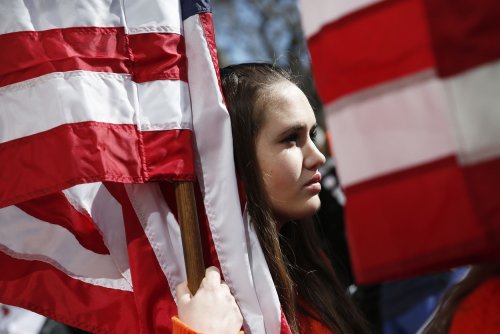WASHINGTON, July 12 (UPI) -- The long delay in appointing a new U.N. representative for Iraq, who was finally named on Monday, reflects the world body's lack of enthusiasm about going back into that strife-torn country. On paper, last month's Security Council resolution calls for the United Nations to play "a leading role" in Iraq -- in practice, the United Nations isn't there yet.
That role is a large one, including organizing and co-chairing a national conference of ethnic, religious and tribal groups along the lines of the Afghan loya jirga, providing help in organizing general elections, scheduled for January, and giving guidance on the drafting of a new constitution.
Some of preliminary work is already in hand. For example, a team of U.N. specialists organizing elections is training a group of Iraqis out of harm's way in Mexico. About 200 U.N. staffers are working on Iraq issues in Amman, Jordan. But the United Nations will need an extensive in-country presence very shortly if it wants to help Iraqis conduct a population census and prepare the infrastructure for a nationwide ballot.
So to be effective the United Nations needs to bite the bullet and resume operations in Iraq itself. U.N. Secretary-General Kofi Annan's announcement that Ashraf Jehangir Qazi, Pakistan's ambassador to Washington, has been appointed to succeed Sergio Vieira de Mello as the representative in Baghdad revives memories of de Mello's death along with 21 other U.N. staffers last August when a suicide bomber blew up the U.N. headquarters in the Iraqi capital.
This time, Annan is under strong pressure from U.N. staff to get the security arrangements right before sending them back into the Iraqi maelstrom. Western diplomats in Washington say the security problem is bedeviled by an inherent contradiction.
The most effective protective force for U.N. personnel would be U.S. troops. More then 140,000 members of the American armed forces are still deployed in Iraq and likely to remain there for the foreseeable future.
But close protection from U.S. troops would undermine the United Nations' independent image. It was this perceived closeness that was the root cause for the August bomb attack. So Annan has been frantically trying to recruit troops from other countries for a dedicated protection unit -- so far with only moderate success. He is said to have commitments from Morocco, Algeria, Nepal and Ukraine.
"We are not speaking of 100 percent security or guarantee," Annan was quoted as saying recently. "We know there are risks, but there are certain limits that we have to impose on ourselves."
If all else fails the United Nations is said to be considering using private security teams to protect its personnel. But Qazi's appointment may be the breakthrough Annan is hoping for.
Knowledgeable U.N. sources say that following talks with Annan and President George Bush, Pakistan's President Pervez Musharraf has agreed to assign troops to protect the U.N. operation in Iraq. He had previously ruled out taking part in a multinational force, but the source said, "The way the United Nations works, you get these senior jobs if you give something."
Diplomatic sources said Monday that a small U.N. team was expected to move to Baghdad as early as this week to set up offices in Baghdad's Green Zone, the main U.S. headquarters. But to be effective the U.N. team will have to extend its reach across the country, ideally establishing branch offices in key areas.
The security implications go beyond keeping the United Nations safe, and extend to ensuring that the whole experiment in bringing democracy to Iraq is successful. The main role of Iraqi Prime Minister Iyad Allawi's interim government is to ensure that free elections take place in January as promised, a daunting task that would be impossible without U.N. help. So U.N. staffers will be prime targets of old regime loyalists and Islamist terrorists who want Iraq to remain destabilized. And Western diplomats say the United Nations is so jumpy about being in Iraq that it will not take much to precipitate a second pullout like the one that followed the August attack.
Annan must also protect the organization from another possible danger -- that of being left holding the Iraqi baby.
A year ago, the Bush administration accused the United Nations of being irrelevant. Today, Washington is pressing the world organization to in effect bail the United States out of the Iraqi fiasco. Annan has to do his best to ensure that in the event of failure in Iraq, the United Nations doesn't end up being Bush's scapegoat.














